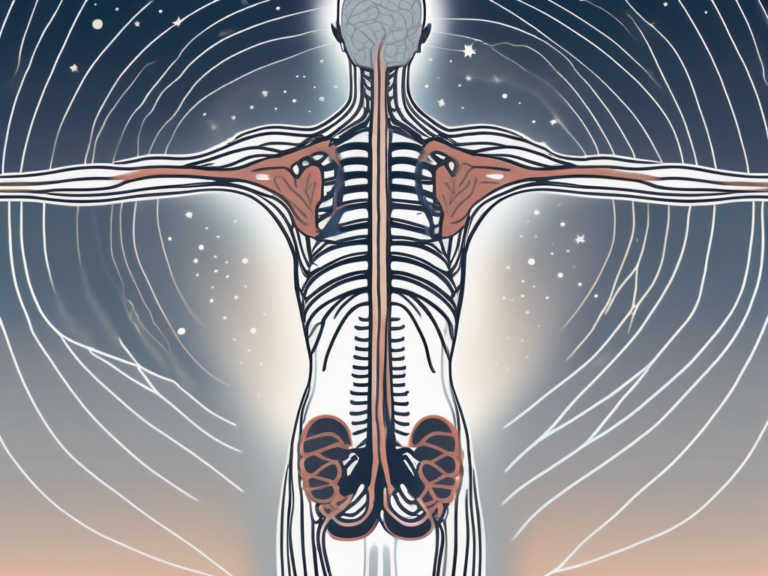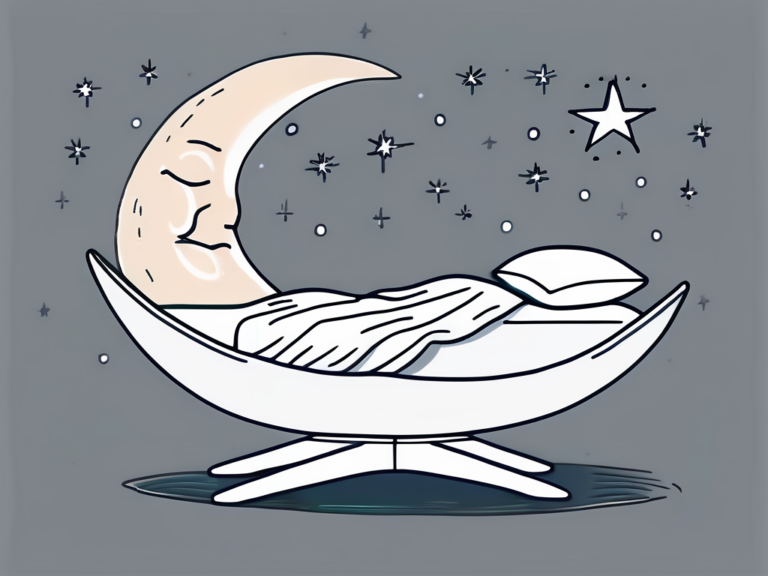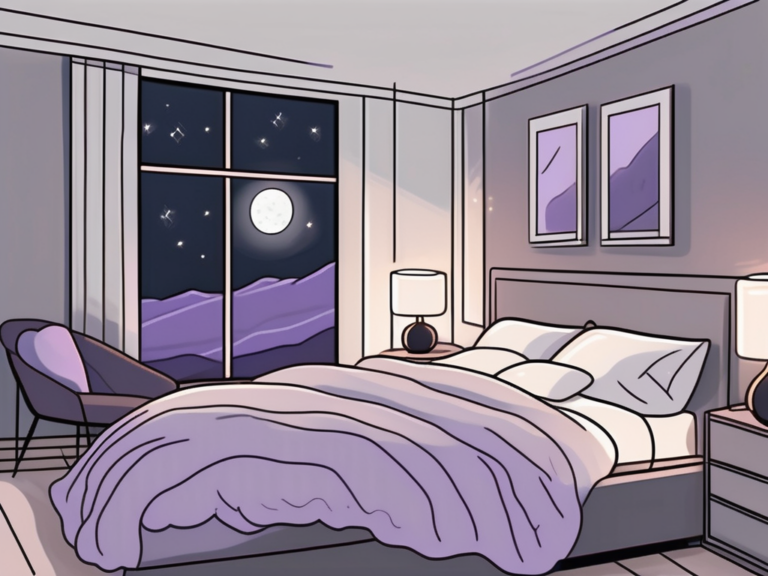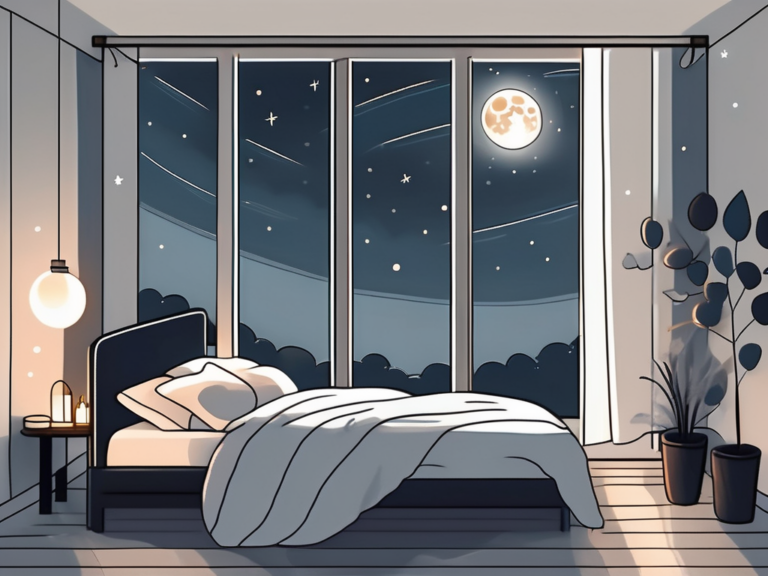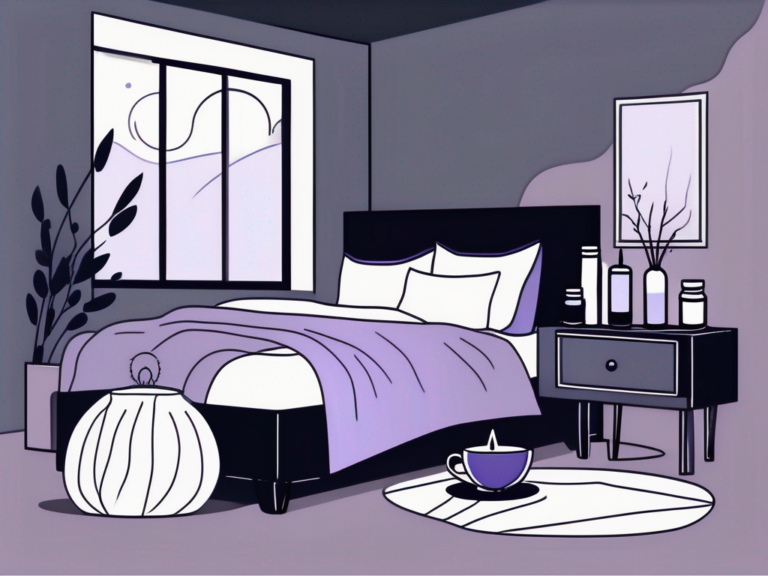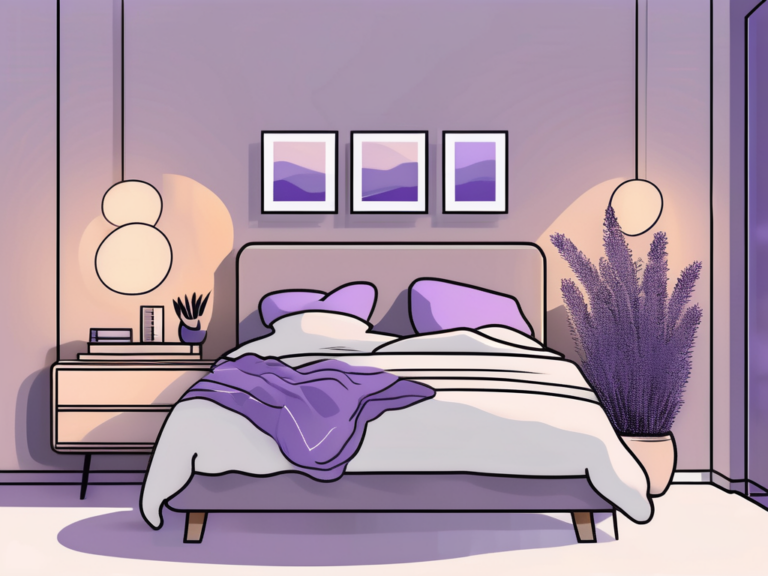Tips on How to Get to Sleep Fast
Are you struggling to fall asleep quickly at night? You’re not alone. Many people find it challenging to wind down and drift off into a restful slumber. However, there are several techniques and strategies you can implement to help you get to sleep faster. In this article, we will explore the importance of sleep, factors that affect sleep, practical techniques for falling asleep quicker, the role of routine in sleep quality, and when it might be time to seek professional help. By incorporating these tips into your nightly routine, you can improve your sleep quality and wake up feeling refreshed each morning.
Understanding the Importance of Sleep
Before diving into specific strategies for falling asleep faster, let’s first discuss the importance of sleep. Sleep plays a crucial role in both our physical health and mental well-being.
The Role of Sleep in Physical Health
Sleep is essential for the proper functioning and repair of our bodies. During sleep, our immune system releases proteins called cytokines, which help fight off infections and inflammation. Lack of sleep can weaken our immune system, making us more susceptible to illnesses and infections. Additionally, sleep deficiency has been linked to an increased risk of developing chronic conditions such as obesity, diabetes, and cardiovascular disease.
But did you know that sleep also plays a vital role in the regulation of our appetite? When we don’t get enough sleep, our body produces more ghrelin, a hormone that stimulates hunger, and less leptin, a hormone that signals fullness. This hormonal imbalance can lead to overeating and weight gain. So, if you’re trying to maintain a healthy weight, getting enough sleep is just as important as eating a balanced diet and exercising regularly.
Sleep and Mental Well-being
Getting enough sleep is equally important for our mental well-being. Sleep helps regulate our mood and emotions, allowing us to approach each day with a clear and positive mindset. Chronic insomnia, a sleep disorder characterized by difficulty falling or staying asleep, has been associated with an increased risk of developing mental health conditions such as depression and anxiety.
Furthermore, sleep plays a crucial role in memory consolidation. While we sleep, our brain processes and stores the information we’ve learned throughout the day, making it easier for us to recall and retain that information in the future. So, if you’re studying for an important exam or trying to learn a new skill, getting a good night’s sleep can significantly enhance your learning and memory abilities.
Identifying Factors That Affect Sleep
Now that we understand the importance of sleep, let’s explore some common factors that can hinder our ability to fall asleep quickly.
Lifestyle Choices and Sleep Quality
Our lifestyle choices can have a significant impact on our sleep quality. Consuming caffeine or nicotine close to bedtime can disrupt our sleep patterns, making it harder to fall asleep. The stimulating effects of caffeine can keep our minds alert and prevent us from feeling drowsy. Similarly, nicotine, found in cigarettes and other tobacco products, is a stimulant that can interfere with our ability to relax and unwind before bed.
In addition to substances, engaging in stimulating activities, such as intense exercise or working on electronic devices, too close to bedtime can also interfere with our ability to fall asleep. Exercise raises our body temperature and releases endorphins, which can make it difficult for us to wind down and relax. Similarly, the blue light emitted by electronic devices like smartphones and tablets can suppress the production of melatonin, a hormone that regulates sleep, making it harder for us to feel sleepy.
Environmental Factors Impacting Sleep
Our sleep environment can also influence how quickly we fall asleep. Factors such as noise, temperature, and light can disrupt our sleep-wake cycle. Excessive noise, whether it’s from traffic, loud neighbors, or even a snoring partner, can prevent us from entering deep, restorative sleep. It’s important to create a quiet environment by using earplugs or white noise machines to mask disruptive sounds.
The temperature of our sleep environment also plays a crucial role in our ability to fall asleep quickly. A room that is too hot or too cold can make it uncomfortable for us to relax and drift off to sleep. It’s recommended to keep the room temperature between 60 and 67 degrees Fahrenheit (15 to 19 degrees Celsius) for optimal sleep conditions.
Lastly, excessive light in the sleep environment can interfere with our body’s natural sleep-wake cycle. Exposure to bright light, especially blue light, before bedtime can suppress the production of melatonin and make it harder for us to feel sleepy. Blocking out excessive light by using blackout curtains or wearing a sleep mask can help promote faster sleep onset.
Practical Techniques for Falling Asleep Faster
Now that we’ve explored the factors that affect sleep, let’s delve into practical techniques that can help you fall asleep faster.
But first, let’s take a moment to understand why falling asleep quickly is important. When we struggle to fall asleep, it can lead to a restless night, leaving us feeling groggy and unfocused the next day. This can affect our productivity, mood, and overall well-being. By implementing these techniques, you can improve your sleep quality and wake up feeling refreshed and energized.
Relaxation Techniques for Better Sleep
Engaging in relaxation techniques before bedtime can signal to your body that it’s time to sleep. Deep breathing exercises, progressive muscle relaxation, and mindfulness meditation are effective techniques to induce relaxation and promote faster sleep onset.
Deep breathing exercises involve taking slow, deep breaths, focusing on inhaling and exhaling fully. This helps calm the nervous system and reduces stress, allowing your body to enter a state of relaxation. Progressive muscle relaxation involves tensing and then releasing each muscle group in your body, starting from your toes and working your way up to your head. This technique helps release tension and promotes a sense of calmness. Mindfulness meditation, on the other hand, involves focusing your attention on the present moment, observing your thoughts and sensations without judgment. This practice can help quiet the mind and prepare it for sleep.
Dietary Changes to Promote Sleep
What we eat can also impact our ability to fall asleep quickly. Avoiding heavy meals close to bedtime and opting for sleep-promoting foods such as bananas, almonds, and chamomile tea can improve sleep quality. Additionally, limiting your intake of stimulating substances like caffeine and alcohol can help you achieve better sleep.
When it comes to food, it’s important to choose wisely, especially in the evening. Heavy meals can cause discomfort and indigestion, making it harder to fall asleep. Instead, opt for lighter options that are rich in sleep-promoting nutrients. Bananas, for example, are a great source of potassium and magnesium, which help relax muscles and promote sleep. Almonds are packed with magnesium and melatonin, both of which are known to regulate sleep patterns. And a warm cup of chamomile tea can have a soothing effect on the body, promoting relaxation and preparing you for a restful night’s sleep.
Furthermore, it’s important to be mindful of substances that can interfere with sleep. Caffeine, found in coffee, tea, and some sodas, is a stimulant that can keep you awake. It’s best to avoid consuming caffeine in the late afternoon and evening. Similarly, alcohol may initially make you feel drowsy, but it can disrupt your sleep later in the night, leading to fragmented and less restorative sleep. Limiting your intake of these substances can significantly improve your sleep quality.
The Role of Routine in Sleep Quality
Establishing a consistent sleep routine can significantly improve your sleep quality and make it easier to fall asleep quickly.
Did you know that our bodies have a natural internal clock, known as the circadian rhythm, that regulates our sleep-wake cycle? By following a regular sleep schedule, you can align your body’s internal clock with your desired sleep times, making it easier to fall asleep and wake up feeling refreshed.
Establishing a Healthy Sleep Schedule
Try to go to bed and wake up at the same time every day, even on weekends. This helps regulate your body’s internal clock and trains it to expect sleep at specific times. Consistency is key when it comes to improving sleep quality.
When you consistently go to bed and wake up at the same time, your body becomes accustomed to this routine, making it easier to fall asleep and wake up naturally without the need for an alarm clock. This can lead to a more restful and rejuvenating sleep experience.
Pre-bedtime Rituals for Improved Sleep
Create a relaxing pre-bedtime routine to signal to your body that it’s time to wind down. Engage in activities such as reading a book, taking a warm bath, or practicing gentle stretching exercises. These activities can help relax your mind and body, preparing you for a restful night’s sleep.
Did you know that the blue light emitted by electronic devices, such as smartphones and tablets, can suppress the production of melatonin, a hormone that helps regulate sleep? By avoiding stimulating activities and bright screens before bed, you can promote the natural production of melatonin, making it easier to fall asleep and stay asleep throughout the night.
In addition to establishing a consistent sleep schedule and engaging in pre-bedtime rituals, it’s also important to create a sleep-friendly environment. Make sure your bedroom is cool, dark, and quiet, as these conditions promote optimal sleep. Investing in a comfortable mattress and pillows can also make a significant difference in your sleep quality.
When to Seek Professional Help
If you’ve tried various techniques and are still struggling to fall asleep quickly, it may be time to seek professional help.
Recognizing Sleep Disorders
Some individuals may have underlying sleep disorders that require specialized treatment. If you regularly experience difficulty falling or staying asleep, excessive daytime sleepiness, or loud snoring accompanied by gasping for breath, consult a healthcare professional who specializes in sleep medicine.
The Role of Sleep Therapy and Medication
Sleep therapy, such as cognitive-behavioral therapy for insomnia (CBT-I), can be highly effective in treating persistent sleep difficulties. Additionally, certain medications may be prescribed by a sleep specialist to help manage specific sleep disorders. It’s crucial to consult with a healthcare professional who can guide you through the appropriate treatment options.
However, seeking professional help is not the only avenue to explore when it comes to improving your sleep. There are also lifestyle changes and alternative remedies that can contribute to better sleep quality. For example, incorporating relaxation techniques into your bedtime routine, such as deep breathing exercises or meditation, can help calm your mind and prepare your body for sleep.
Furthermore, creating a sleep-friendly environment can make a significant difference in your ability to fall asleep quickly. Consider investing in a comfortable mattress and pillows that support your body’s natural alignment. Adjust the lighting in your bedroom to promote a soothing atmosphere, and keep the room at a cool temperature to encourage optimal sleep conditions.
In conclusion, improving your sleep quality and falling asleep faster can have a profound impact on your overall well-being. By understanding the importance of sleep, identifying factors that affect sleep, implementing practical techniques for falling asleep quicker, establishing a routine, and seeking professional help when necessary, you can take proactive steps to achieve a restful night’s sleep. Remember, consistency and patience are key, so don’t be discouraged if you don’t experience immediate results. With persistence and a commitment to healthy sleep habits, a peaceful and rejuvenating slumber awaits you.

